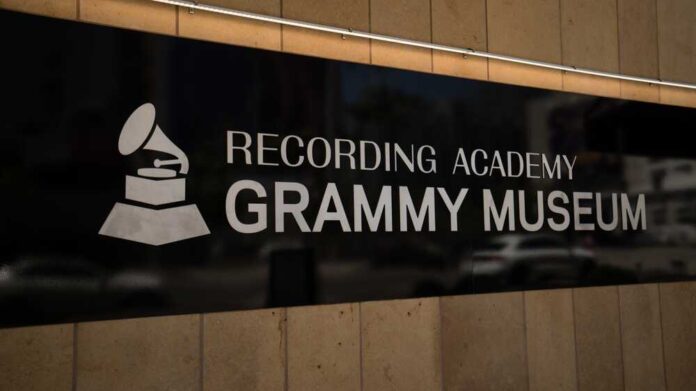
The Recording Academy is implementing various modifications to the Grammy Awards, one of which is a new rule specifying that the music industry’s highest accolade can only be awarded to “human creators.” This decision has been made to address the involvement of artificial intelligence in popular music.
In a statement made on Friday, the Recording Academy announced, “A work that contains no human authorship is not eligible in any category.”
“A work that contains no human authorship is not eligible in any category,” they said, under new “Artificial Intelligence (AI) Protocols” released Friday. https://t.co/WjOl5c9SuE
— TODAY (@TODAYshow) June 17, 2023
The rule was established during the board of trustees meeting of the Recording Academy last month. It was decided that compositions involving elements of artificial intelligence (AI) would still be eligible for consideration, provided that a human creator has made a “meaningful” contribution to the music and/or lyrics.
The new rules specify, “The human authorship component of the work submitted must be meaningful.”
The announcement comes shortly after Paul McCartney revealed on Tuesday that a forthcoming “last Beatles record” had been created using artificial intelligence. The AI technology extracted John Lennon’s voice from an old demo to compose the music.
McCartney expressed both intrigue and apprehension about AI, describing it as “kind of scary but exciting” and expressing curiosity about its potential future implications. He stated that time will reveal where this technological development leads.
Alongside the introduction of the AI rule, the Recording Academy has implemented significant changes in other categories as well. Notably, for an album to be nominated in the album of the year category, a music creator must now account for a minimum of 20% of the work.
This calculation encompasses all credited artists, featured artists, songwriters, producers, engineers, mixers and mastering engineers. This adjustment departs from the previous approach in 2021, which allowed any individual involved in the album’s production to receive a nomination.
The Recording Academy has made notable changes to the “Big Four” categories, namely best new artist, album of the year, song of the year and record of the year. The number of nominees eligible for these categories has been reduced from 10 to eight.
Additionally, there has been a revision in the nomination criteria for the “best music film” category. The previous requirement of having 50% performance-based documentary footage to be nominated has been lifted.
As part of their recent announcements, the Recording Academy revealed changes to certain award categories. The “best-improvised jazz solo” award has been renamed to “best jazz performance,” reflecting a broader recognition of jazz performances beyond solos. Similarly, the category “best regional Mexican music album (including Tejano)” has been renamed to “best música Mexicana album (including Tejano),” encompassing a wider range of Mexican music styles.












